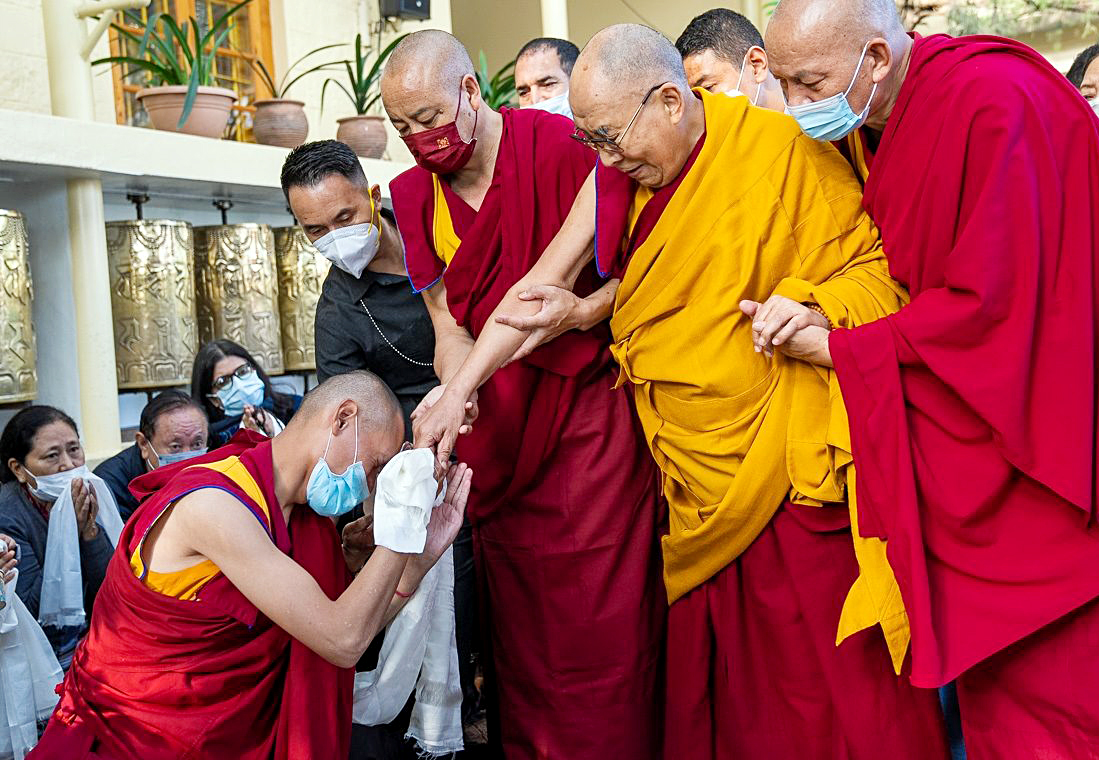NEW DELHI: The United States and China are once again at loggerheads, with a senior US diplomat condemning China’s “sinister” plan to install its own Dalai Lama, the Buddhist religious head, at a time when Tibet is passing through a critical moment to save its own religious, cultural, and linguistic heritage.
During the UNHRC session held earlier this month in Geneva, the US Mission in Geneva, US State Department’s Under Secretary for Civilian Security, Democracy and Human Rights, Uzra Zeya held a side event with the representatives of the Tibetan community and the Tibetan government in-exile, affirming that the US would support the religious freedom of the people of Tibet and would support the people of Tibet to have the freedom to choose their own leader. Zeya, soon after this meeting
Interestingly, China had also held a side event on the same day in Geneva titled “International Webinar on the Religious Rituals and Historical Customs of the Reincarnation of Living Buddhas,” where Beijing tried to “reaffirm” its jurisdiction over Dalai Lama’s reincarnation.
Tibet is passing through a critical moment to save its distinct religious, cultural and linguistic heritage at a time when China for long has been wanting to meddle into the religious affairs of Tibet with the hope to take absolute political control of the Tibetan region. And as the succession plan for the 14th Dalai Lama draws closer, China’s activities to take control of the religious affairs of Tibet have been growing stronger.
The Chinese government, since 2007, through an “arbitrary” law called the law on “Management Measures for the Reincarnation of Living Buddhas in Tibetan Buddhism”, had already taken control of the management of all monastic administrations and took complete control of the power to recognise reincarnated Lamas/Living Buddhas, and continues to use it to meet their political ends.
However, the Tibetan government in-exile has reaffirmed its position on the succession plan of its religious head, the Dalai Lama. In a recently released statement, the Kashag or the Cabinet of the Central Tibetan Administration, said, “The system of recognising reincarnated spiritual beings is a religious practice unique to Tibetan Buddhism. The fundamental thought behind this philosophy is to accept the principle of life after death. With regard to the reincarnation of His Holiness the Dalai Lama, His Holiness’s repeated statements since 1969, the official pronouncement of 24 September 2011, or any guidance in future is inherently discretionary. No government nor any individual has the right to interfere in this matter.”
The International Tibet Network (ITR), a worldwide coalition of Tibet-related non-governmental organizations, presented a 32-page report, titled: “Tibet, the Dalai Lama, and the Geopolitics of Reincarnation,” on the sidelines of the UNHRC meeting in Geneva showcasing factors on how China can be utilizing the Dalai Lama’s passing as a “strategic” and “historic” alternative to agency up its management of the area.
The report also outlines the geopolitical implications of China’s plan to “Sinicize” Tibetan Buddhism and its attempt to control the Dalai Lama’s succession. According to “key findings” mentioned in the report, “Internal CCP briefings reveal that Beijing has developed a public relations strategy targeting Western governments and media outlets involving a plan to end international support for Tibet in what they term the ‘post Dalai era’. Part of this plan includes installing their own Dalai Lama candidate, combined with extreme measures of ‘Sinicization’, China’s aim is to ensure more sustained control over Tibet.”
The report further states that Order No. 5 promulgated by the Communist Party of China has plans to annul and invalidate the Tibetan Buddhist system of recognising reincarnations. “Should any religious figure go against these measures of escalated control, they are subjected to imprisonment, torture, and even death. In 2020 a monk in Nagchu was tortured and died after being found to have a picture on his phone of a young boy recognised as a reincarnate Lama by the 14th Dalai Lama in India,” the report states.
China has also adopted new measures as part of its strategy to undermine and supplant the Tibetan religious hierarchy and weaken the authority of legitimate Tibetan religious leaders both inside and outside Tibet, the report said.
US, Tibetans object to Chinese interference in Dalai Lama’s succession plan
इस शब्द का अर्थ जानिये
- Advertisement -

